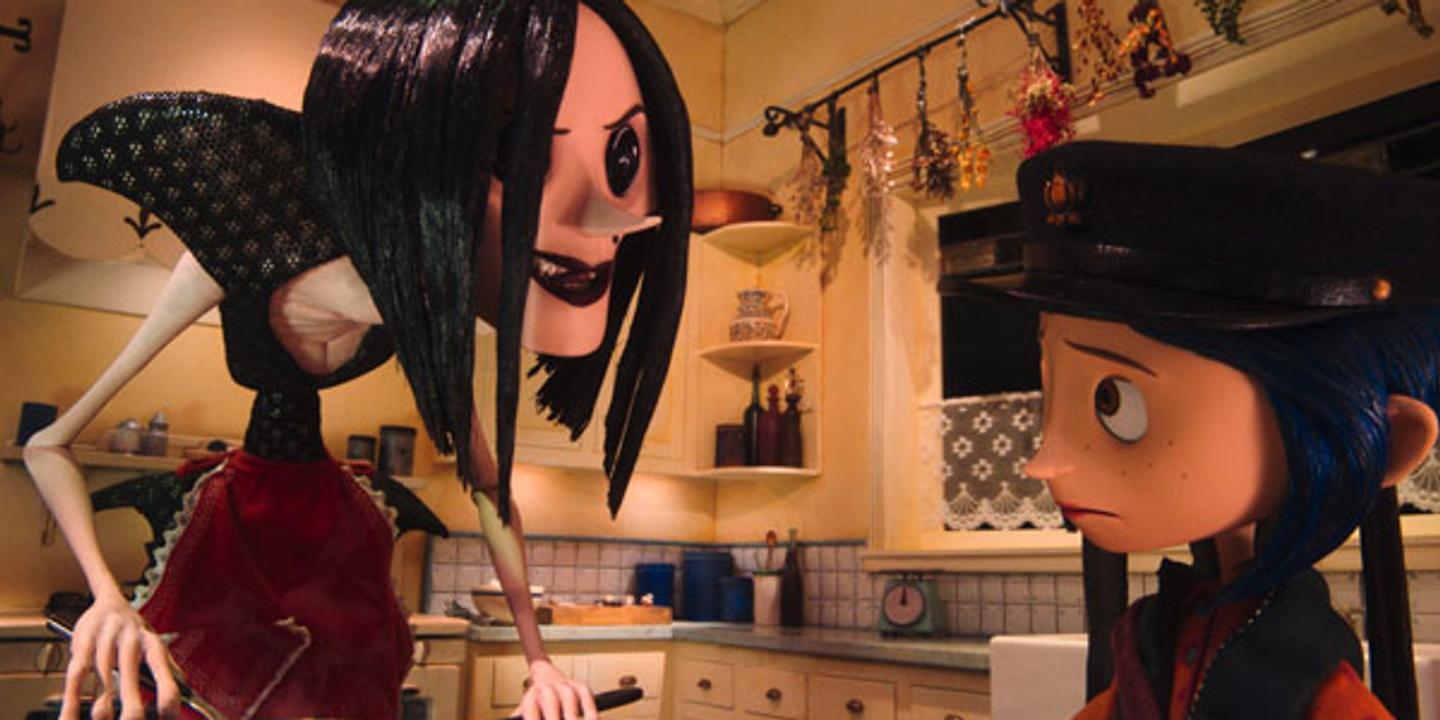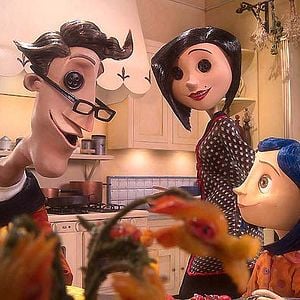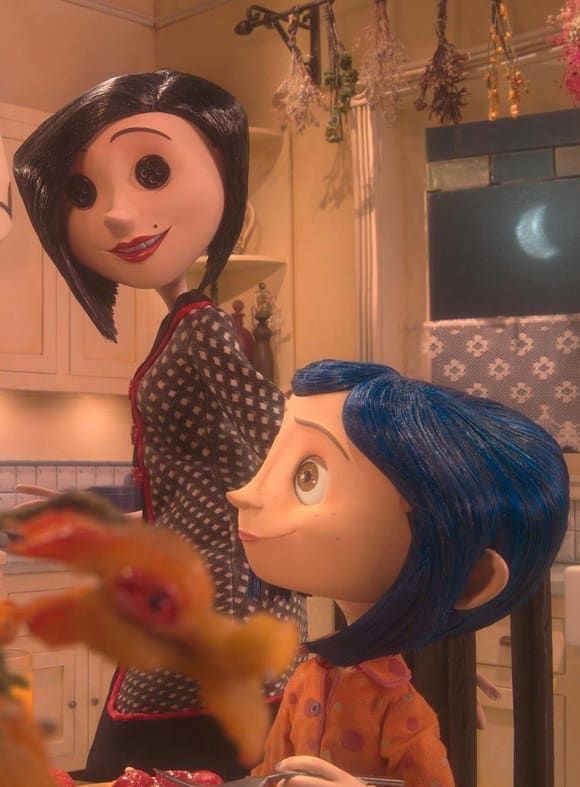Unveiling the Enchanting World of Coraline: Is Coraline Based on a True Story?

Step into the hidden corridor of imagination as we explore what makes the 2009 stop-motion animated film Coraline a timeless masterpiece. With its uncanny blend of whimsy and chilling atmosphere, fans often ask “is Coraline based on a true story?” This article dives deep into the film’s origins, its source material by Neil Gaiman, and the layers of meaning that elevate it beyond mere children’s fantasy.
The Origins of Coraline: From Page to Screen
Before the stop-motion frames came to life, Coraline was a novella penned by Neil Gaiman, published in 2002. Gaiman’s tale is steeped in the eerie tradition of fairy tales, using darkness to illuminate resilience. The character Coraline Jones ventures beyond her mundane reality into a parallel world—one that mirrors her own yet distorts it in sinister ways.
Naturally, the question “is Coraline based on a true story?” arises—because anything that uncomfortably reflects real fears often feels “true” emotionally. The answer? No. Coraline’s world is fictional, deriving instead from archetypes, myths, and Gaiman’s vivid imagination.
Emotionally True vs. Literally True
When someone asks is Coraline based on a true story, they’re often grappling with the emotional resonance of the narrative. The film taps into very real childhood anxieties—feelings of invisibility, the terror of abandonment, and the eerie allure of a perfect world with dark undertones. While no girl literally steps into a button-eyed alternate universe, the emotional truths of Coraline’s experience echo real psychological landscapes.
How Myth and Folklore Shape Coraline’s Reality
Gaiman’s story echoes folkloric motifs: enchanted doors, doppelgängers, and helpful yet ominous “other mothers.” These elements are embedded deeply in global folklore. Thus, when wondering is Coraline based on a true story, it’s helpful to realize that its “truth” is metaphorical—rooted in universal anxieties and legendary narrative structures, not in documented events.
The Film Adaptation: A Visual Feast of Fear and Wonder
In 2009, Coraline leapt from page to screen under the deft direction of Henry Selick. The stop-motion animation brings a tangible, handcrafted realism to the characters and settings. Each frame pulses with life—even when the Other World distorts everything with silk and shadows.
If you ask again, “is Coraline based on a true story?”, the reply remains—emotionally grounded, imaginatively boundless. The film didn’t claim a real-life counterpart, yet it evokes feelings as vivid as any memory.
Comparing Coraline to Other “True Story” Adaptations
Some modern adaptations grapple with the label “based on a true story.” For instance, viewers often search
is Good American Family based on a true story,
is Sinners based on a true story,
or wonder
is Adolescence based on a true story.
These works flirt with veracity—some dramatize real events, others augment thinly veiled memoirs. Coraline, in contrast, stands firmly in speculative fiction. Its credibility springs not from factual grounding, but from emotional fidelity and narrative craft.
Why People Believe Coraline Might Be Real
What fuels the persistent query is Coraline based on a true story? Several factors:
- Real-world anxiety mapped onto fantasy: Coraline’s fears mirror childhood insecurity.
- Metaphoric realism: The Other Mother may be literal fiction, but she symbolizes very real manipulative forces in life.
- Visual tangibility: The tactile aesthetic of stop-motion injects a lifelike quality, making the uncanny feel plausible.
Insights from Neil Gaiman Himself
In interviews, Gaiman clarified that Coraline is entirely fictional. He drew inspiration from classic fairy tales and his own imagination. Any connections to real events are universally thematic—e.g., feeling unheard, longing for affection—not biographical. So, when we ask “is Coraline based on a true story?”, Gaiman’s answer remains clear: it’s not—yet its emotional core is undeniably authentic.
The Lasting Impact of Coraline’s Inventive Truth
Coraline isn’t rooted in real life, but its legacy endures because it speaks to the human experience. The film:
- Validates childhood fears: Dressing them in fantasy allows us to confront them safely.
- Reclaims empowerment: Coraline’s journey from vulnerability to courage models resilience.
- Invites interpretation: Whether read as a horror tale or a coming-of-age allegory, it rewards repeat viewings and deeper thought.
Therefore, the question “is Coraline based on a true story?” may be answered in layers: literally, no—but metaphorically and emotionally, yes.
Conclusion: Fiction Stamped with Emotional Truth
In summary, Coraline is a fictional animated film, masterfully adapted from Neil Gaiman’s novella. Its enchantment lies not in factual events, but in the universality of its emotional undercurrents. The haunting scenery and eerie Other World may feel strangely familiar, yet no real child has passed through a button-eyed portal. As you reflect, remember: stories like Coraline don’t need to be “true” to resonate—they need to be felt. And this one is felt deeply.
Explore more on Neil Gaiman’s creative vision and the making of Coraline on its Wikipedia page: Coraline – Wikipedia
Legends, Folklore, and the Hidden Truth Behind Coraline: Is Coraline Based on a True Story?

Across cultures, legends of parallel worlds and magical doors have captivated imaginations for centuries. The stop-motion animated film Coraline tapped directly into this rich mythological heritage, weaving a chilling yet whimsical tale that prompts fans to ask over and over again: is Coraline based on a true story? To answer this, we need to dive into the roots of folklore, the concept of alternate realities, and how Neil Gaiman transformed these ideas into one of the most haunting animated films ever made.
The Timeless Fascination with Parallel Worlds
The question is Coraline based on a true story is more than curiosity—it’s a reflection of how deeply humanity has always been fascinated by the idea of worlds beyond our own. From ancient Celtic fairy mounds that hide other realms, to Japanese “kamikakushi” tales of children spirited away, these myths give us a glimpse into the unknown. Coraline’s Other World is part of this narrative tradition: a reality just like ours, yet twisted in unsettling ways.
Doors as Portals in Myth and Fiction
In folklore, doors often symbolize transition and transformation. The magical door in Coraline’s home is a direct homage to centuries-old stories of gateways to danger or wonder. When people ask is Coraline based on a true story, they’re partly recognizing these archetypal patterns. The “Other Mother” behind the door is a reinvention of folkloric figures—half nurturing, half predatory—designed to tempt and trap the unwary.
Neil Gaiman’s Sources of Inspiration
Before answering whether is Coraline based on a true story, it’s crucial to understand Gaiman’s creative process. He has openly stated that the story was entirely fictional, yet heavily inspired by myth, fairy tales, and even unsettling moments from his own childhood. He imagined a girl discovering a door to another reality, but instead of a paradise, she finds a dangerous trap disguised as love.
Folkloric Figures Reimagined
The Other Mother resembles mythic entities like the Slavic “Baba Yaga” or the fairy changelings of Celtic lore. Such beings lure victims with promises of better lives, only to imprison them. Asking is Coraline based on a true story means recognizing that while no literal event happened, the story’s DNA comes from “true” cultural fears.
The Emotional Reality Behind the Fiction
While is Coraline based on a true story may be answered literally with a “no,” the emotional truth is undeniable. Coraline’s loneliness, her desire for attention, and her courage in facing danger are all very real experiences that resonate with audiences. Neil Gaiman simply dressed them in the garments of fantasy.
Why the Story Feels Real
The stop-motion artistry brings a tactile realism that tricks the mind into believing. Combine that with universal themes—love, deception, bravery—and it’s no wonder people repeatedly search is Coraline based on a true story years after its release.
Connecting Coraline to Other “True Story” Myths
The question is Coraline based on a true story belongs to a larger cultural trend. People also wonder about works like
is Snowfall based on a true story,
The Conjuring true story, and
is The Blair Witch Project based on a true story.
Some of these are inspired by actual events, others fabricate a “true” backstory as a marketing device. Coraline stands apart—it never claimed reality, yet it feels real because it speaks to shared fears.
The Psychological Layer
Parallel world myths often act as metaphors for personal transformation. Coraline’s journey mirrors the rite of passage: she leaves home (the known world), faces trials in the unknown, and returns stronger. When we ask is Coraline based on a true story, we’re really asking if this transformation could happen to us—emotionally, if not literally.
The Mythic Structure of Coraline
Gaiman’s plot fits Joseph Campbell’s “Hero’s Journey” template, common to both ancient myths and modern storytelling. This reinforces the sense of familiarity that fuels the is Coraline based on a true story question.
Archetypes at Play
The Other Mother is the Shadow, Coraline is the Hero, and the talking cat is the Mentor. These archetypes make the story feel timeless, blurring the line between fairy tale and possible truth.
Folklore’s Influence on Modern Cinema
Many films borrow from mythic elements, but Coraline integrates them more subtly. Instead of outright retelling a legend, it weaves fragments into a fresh narrative. This craftsmanship is why audiences repeatedly debate is Coraline based on a true story.
The Doorway as a Psychological Symbol
Doors in Coraline represent the boundary between comfort and challenge. The moment she steps through, she enters a realm that forces her to confront her deepest fears. This mirrors our own moments of change, lending credibility to the is Coraline based on a true story speculation.
Why “True Story” Myths Endure
Humans crave meaning, and labeling something as “true” gives it extra weight. Even without factual grounding, Coraline satisfies this craving by delivering moral and emotional truths. The persistence of is Coraline based on a true story searches proves how effectively it taps into this need.
The Lasting Legacy of Coraline
Years after its release, Coraline remains a reference point for how animation can handle mature themes. It proves that a story doesn’t need factual roots to leave a lasting impact. That’s why is Coraline based on a true story will continue to intrigue new audiences.
Conclusion: The Truth Beyond the Door
Ultimately, the answer to is Coraline based on a true story is simple: no, it’s not based on real events. But it is based on real feelings, ancient myths, and the universal journey from innocence to self-reliance. Neil Gaiman’s genius lies in blending folklore and fantasy so seamlessly that the Other World feels just a heartbeat away.
Discover more about the making of Coraline and Neil Gaiman’s vision on its official Wikipedia page:
Coraline – Wikipedia
The Voices Behind Coraline: Exploring the Cast and the Magic They Brought

When audiences watch the stop-motion masterpiece Coraline, they are often captivated not only by its eerie visuals but also by the unforgettable voices that bring its characters to life. For many, this leads to the common question: is Coraline based on a true story? While the story is fictional, the performances feel so authentic that it’s easy to wonder if these actors were channeling something real.
Dakota Fanning as Coraline Jones
Dakota Fanning’s portrayal of Coraline is one of the film’s strongest elements. Her voice captures both the curiosity and stubbornness of the character. Each line delivery makes viewers feel as if they are hearing a real child’s voice facing a surreal challenge. It’s no wonder fans keep asking is Coraline based on a true story, because Fanning’s performance blurs the lines between fiction and reality.
Balancing Innocence and Courage
Fanning’s ability to shift from playful to fearful makes Coraline’s journey believable. Even though is Coraline based on a true story has a literal answer of “no,” her voice acting convinces us to suspend disbelief.
Teri Hatcher as Mel Jones and The Other Mother
Teri Hatcher delivers a dual performance: the slightly distracted real-world mother, and the chilling, manipulative Other Mother. Her tone changes dramatically between the two, making the Other Mother both alluring and terrifying. This contrast adds weight to the is Coraline based on a true story debate because it feels like two separate people exist in the same film.
From Warmth to Wickedness
The shift in Hatcher’s voice as the Other Mother turns sinister is a masterclass in voice acting. Even if is Coraline based on a true story is purely speculative, her performance feels grounded in real emotional manipulation.
Keith David as The Cat
Keith David’s deep, silky voice gives the mysterious Cat a timeless quality. The Cat acts as a guide, speaking in riddles and truths. His voice carries authority, making him a trusted figure despite the strangeness of the world. Fans searching is Coraline based on a true story often cite the Cat’s wisdom as feeling “too real” for a fantasy.
A Voice of Calm Amid Chaos
David’s calm tone offers reassurance to both Coraline and the audience. It’s another example of how exceptional voice work can give rise to the is Coraline based on a true story curiosity.
Jennifer Saunders and Dawn French as Miss Spink and Miss Forcible
This comedic duo brings life to Coraline’s eccentric neighbors. Their voices are full of warmth, humor, and a touch of nostalgia, grounding the film’s stranger elements in relatable human quirks. Their presence reinforces the question is Coraline based on a true story, because their performances feel lifted from real-life personalities.
Humor as a Storytelling Tool
In a film that flirts with horror, their comedic timing offers much-needed relief. The fact that these characters feel so authentic is part of why people keep asking is Coraline based on a true story.
Ian McShane as Mr. Bobinsky
Ian McShane’s performance as the enigmatic Russian acrobat is unforgettable. His thick accent and theatrical delivery make Bobinsky one of the most colorful characters in the film. This eccentricity sparks curiosity and keeps the is Coraline based on a true story conversation alive—because Bobinsky feels like someone you could meet in real life.
The Magic of an Accent
McShane’s voice acting adds authenticity to a character that could have easily felt cartoonish. Even though is Coraline based on a true story isn’t factually true, his performance tricks us into believing.
Robert Bailey Jr. as Wybie Lovat
Wybie, the quirky neighbor boy, is voiced by Robert Bailey Jr. His performance perfectly captures awkwardness and curiosity, making Wybie endearing to audiences. His believable delivery is another reason is Coraline based on a true story continues to trend in fan discussions.
Relatable Friend Energy
Wybie feels like a real person—nervous, kind, and brave when it matters. Bailey’s voice acting makes it easy to imagine him existing outside of the film, fueling the is Coraline based on a true story fascination.
Supporting Voices That Complete the World
Beyond the main cast, supporting voices create a fully realized world. Every character, no matter how small, contributes to the feeling that this could be a real neighborhood. This immersive quality keeps the is Coraline based on a true story question alive for new viewers.
The Sound of a Believable World
Even background chatter and side characters are voiced with precision. This attention to detail makes it harder for the audience to separate fiction from potential reality—hence, is Coraline based on a true story.
Why the Cast Matters in the “True Story” Debate
The film’s realism doesn’t come from its visuals alone; it comes from the performances of its cast. The nuanced voice acting sells the story as something that could be happening just out of sight. This is the root of the is Coraline based on a true story phenomenon.
The Power of Believable Performances
Voice acting can make even the most fantastical plot feel grounded. Coraline’s cast achieves this so well that is Coraline based on a true story feels like a legitimate question, not just fan speculation.
Conclusion: The Real Magic of Coraline’s Voices
While the literal answer to is Coraline based on a true story is “no,” the emotional truth behind the performances is undeniable. Each actor infused their role with life, making the Other World feel tangible. The cast’s combined effort ensures Coraline remains a timeless classic that will continue to inspire that same question for years to come.

